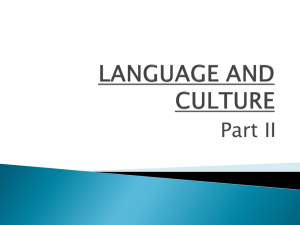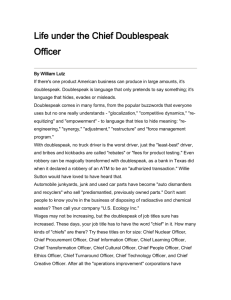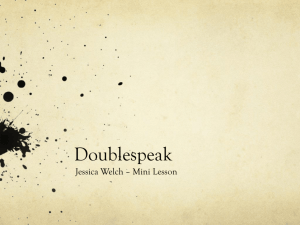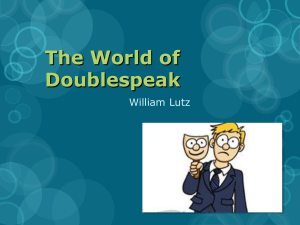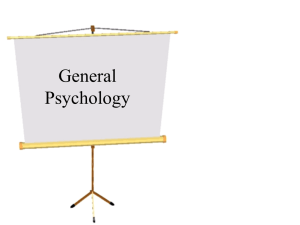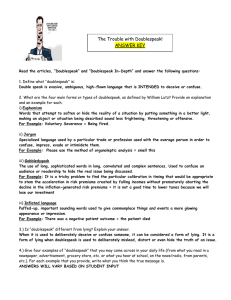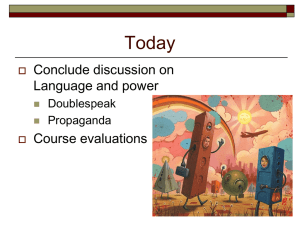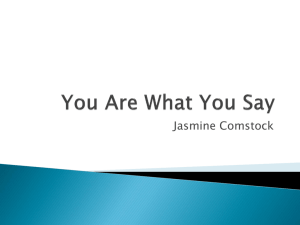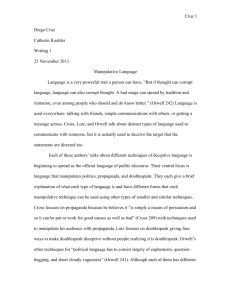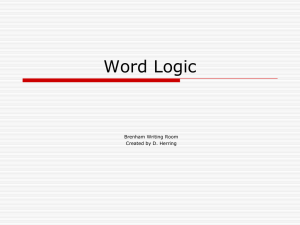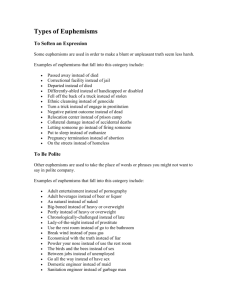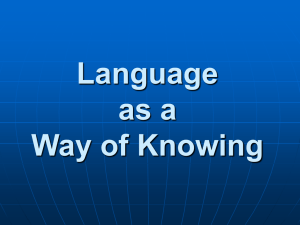LOADED LANGUAGE and POLITICAL CORRECTNESS
advertisement
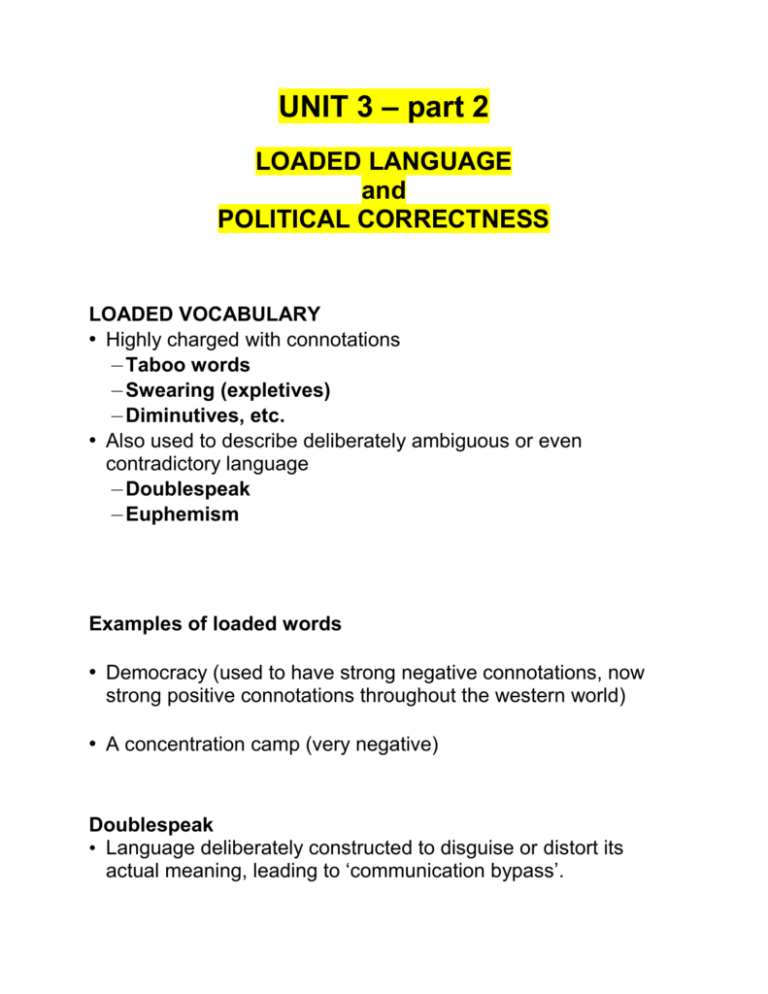
UNIT 3 – part 2 LOADED LANGUAGE and POLITICAL CORRECTNESS LOADED VOCABULARY • Highly charged with connotations – Taboo words – Swearing (expletives) – Diminutives, etc. • Also used to describe deliberately ambiguous or even contradictory language – Doublespeak – Euphemism Examples of loaded words • Democracy (used to have strong negative connotations, now strong positive connotations throughout the western world) • A concentration camp (very negative) Doublespeak • Language deliberately constructed to disguise or distort its actual meaning, leading to ‘communication bypass’. • Used mainly by governmental, military, or corporate institutions. • Its form uses euphemisms (‘downsizing’ for ‘firing of many employees’) or deliberately ambiguous phrases (‘wet work’ for ‘assassination’) • The Doublespeak campaign – in 1971 the National Council of Teachers of English in the USA started fighting against it. • It is language which makes the bad seem good, … or at least tolerable.’ (from Crystal) Examples of Doublespeak • Energetic disassembly (explosion in a nuclear plant) • To secure an area (kill remaining enemy soldiers) Euphemisms • Originally a word used in place of a religious word that should not be spoken aloud (taboo) • Now replace certain unpleasant, rough or unsuitable words in society Spheres where euphemisms are often used • Death, illness, physiological functions, old age, sex, religion, upgrading unwanted professions Political Correctness • Started as a good thing – not to harm people who are disadvantaged, not to discriminate against them, not to give offence in 1980s, to eradicate prejudice from language. Sensitive topics, where PC is expected from a speaker • Racial and ethnic groups • Gender • Age • Illness and disability • Sexual preference • Titles
